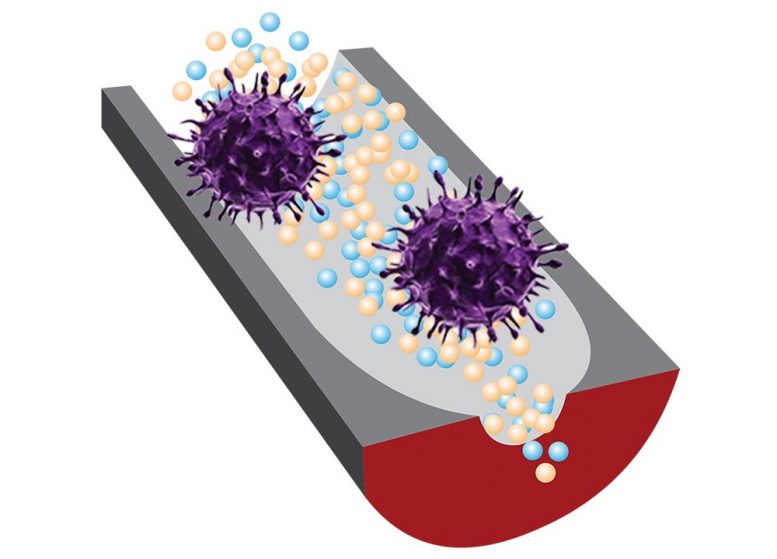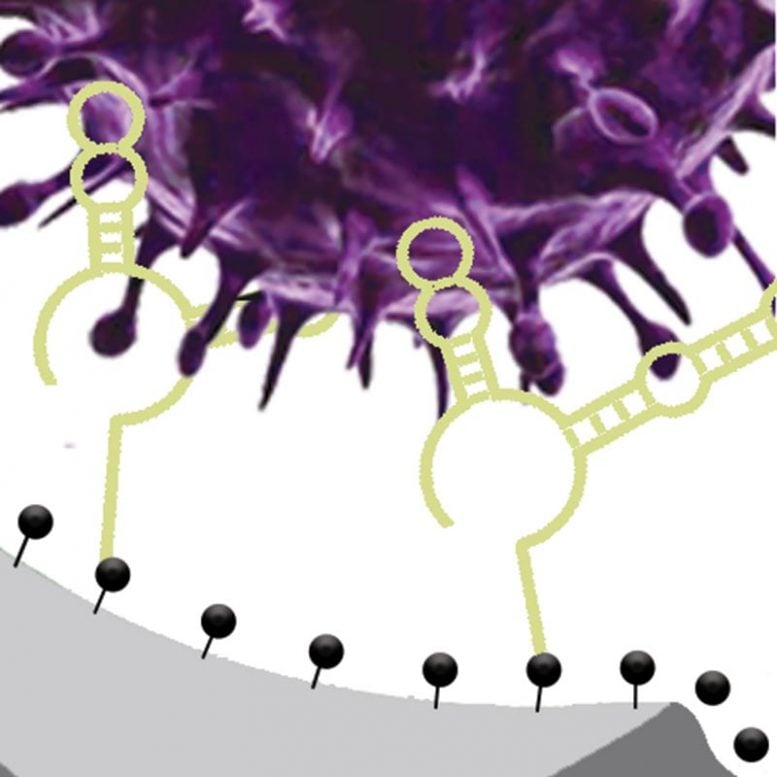
A new sensor can distinguish infectious viruses from noninfectious ones thanks to selective DNA fragments and sensitive nanopore technology. Credit: Image courtesy of Ana Peinetti
A new sensor can detect not only whether a virus is present, but whether it’s infectious – an important distinction for containing viral spread.
Researchers at the University of Illinois Urbana-Champaign and collaborators developed the sensor, which integrates specially designed
“The infectivity status is very important information that can tell us if patients are contagious or if an environmental disinfection method works,” said Ana Peinetti, the first author of the study, who performed the work while a postdoctoral researcher at Illinois. She now leads a research group at the University of Buenos Aires in Argentina. “Our sensor combines two key components: highly specific DNA molecules and highly sensitive nanopore technology. We developed these highly specific DNA molecules, named aptamers, that not only recognize viruses but also can differentiate the infectivity status of the virus.”

DNA aptamers bind selectively to infectious viruses. In addition to the nanopore sensor, they could be integrated into other platforms such as color-changing dipsticks. Credit: Image courtesy of Ana Peinetti
The “gold standard” of viral detection, PCR tests detect viral genetic material but cannot distinguish whether a sample is infectious or determine whether a person is contagious. This can make it more difficult to track and contain viral outbreaks, the researchers said.
“With the virus that causes COVID-19, it has been shown that the level of viral